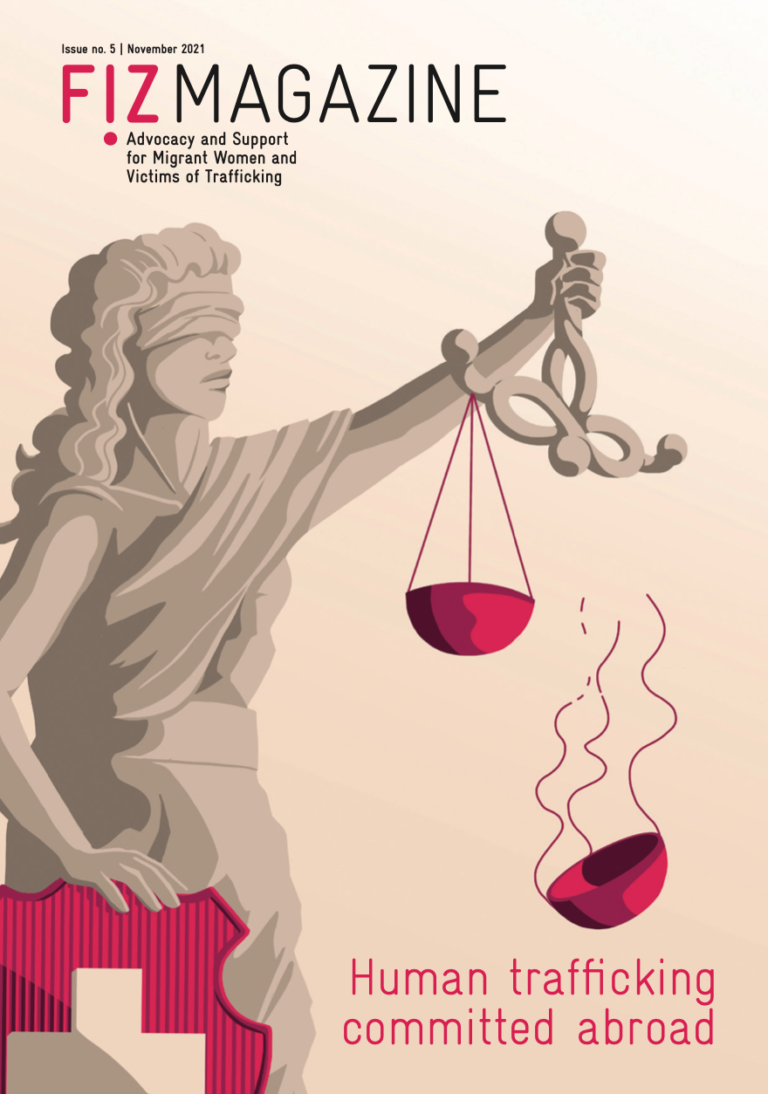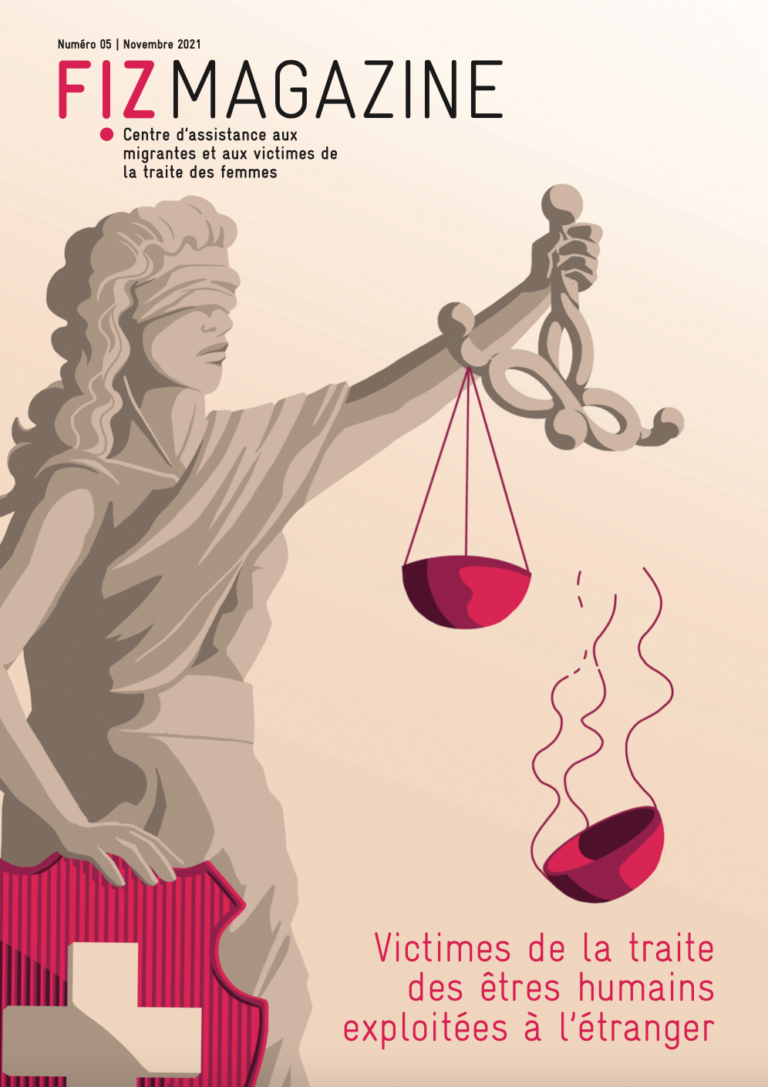Switzerland likes to be the exception. Unfortunately, this is also the case when it comes to the direct application of the Council of Europe Anti-Trafficking Convention. Whereas the Convention states clearly that the access to support services must be guaranteed independently of the place of exploitation, the Swiss Victim Aid Act denies access to victim aid to anyone who did not possess a residency in Switzerland at the time of the exploitation and has been exploited abroad. For foreign victims of trafficking, this means that technically they only have access to support if their exploitation took place in Switzerland, thus excluding a large number of victims currently living in Switzerland or going through the asylum process in the country.
Since this situation is not only against international human rights law but also has a direct impact on FIZ’s daily work and its clients, they decided to dedicate this year’s magazine to this topic in order to bring this injustice to the forefront and initiate change. This issue also includes a conversation with lawyer and human trafficking expert Julia Planitzer, where she discusses the discrepancy between mandatory international law and the reality in Switzerland. The magazine is available in English and French.


